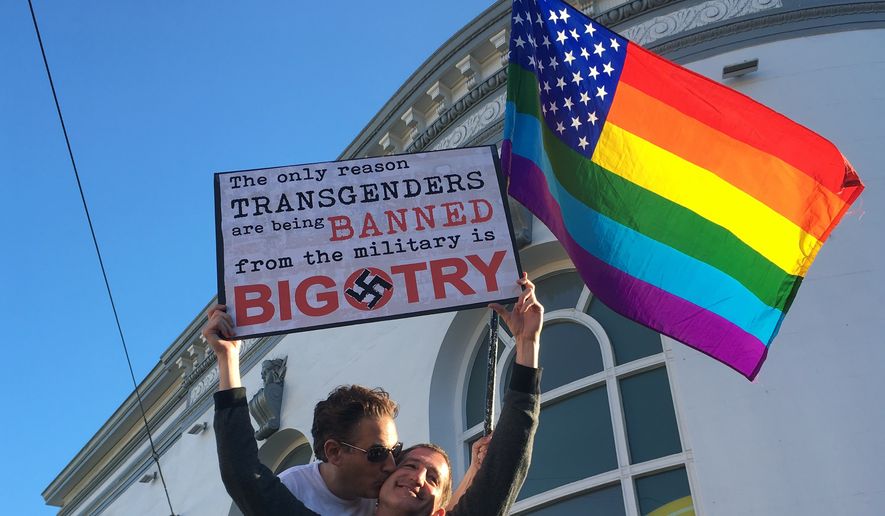Something unexpected happened when female journalists at BBC News set up a private chat to discuss equal pay and representation at the network: They began having heated discussions about transgender rights.
Messages from the private WhatsApp group were leaked to BuzzFeed News and showed that not all women at the public British broadcaster are on board with the latest civil rights crusade.
Views on transgender rights tended to correlate with age. Several older employees were concerned that men identifying as women could erode the effort for workplace equality.
“If transwomen self-ID are eligible for maternity pay or leave, it means the sex discrimination claim of being fired or badly treated for pregnancy is erased,” one senior producer wrote. “One loses that resource to a claim for sex discrimination - though of course the discrimination would still happen.”
A younger employee responded: “Shouldn’t trans women qualify for maternity leave though?”
“As TW [trans women] are biologically male, they will, by definition, only be in a co-parenting situation & would therefore eligible for paternity/co parent leave in the same way as lesbian/gay non biol co-parents,” the producer wrote. “Or adoption leave, when relevant.”
One source told BuzzFeed that several of the more prominent women at the network left the chatroom out of concern that the messages would be leaked and scandal would erupt.
Continuing the discussion, one woman wrote that “womankind is big enough to embrace those on the edges.”
A senior producer replied: “I would agree, if it was just a case of being nice. But it erases the meaning of ’woman’, and you can’t define women’s rights if you can’t define women.”
That message prompted someone to leave the chat, and another person responded, “Bollox.”
The “BBC Sisterhood” WhatsApp was set up for female employees to communicate following disclosures last year that men at the network earned about 10 percent more than women.
Out of a workforce of 21,000, there are 417 transgender employees at the BBC, according to a report released last year.
Transgender people in the U.K. currently have to acquire a gender recognition certificate, which requires a medical check, to be recognized as their self-identified sex. But a more relaxed policy currently under consideration would allow people to transition to the opposite sex without going through the legal system.
• Bradford Richardson can be reached at brichardson@washingtontimes.com.




Please read our comment policy before commenting.